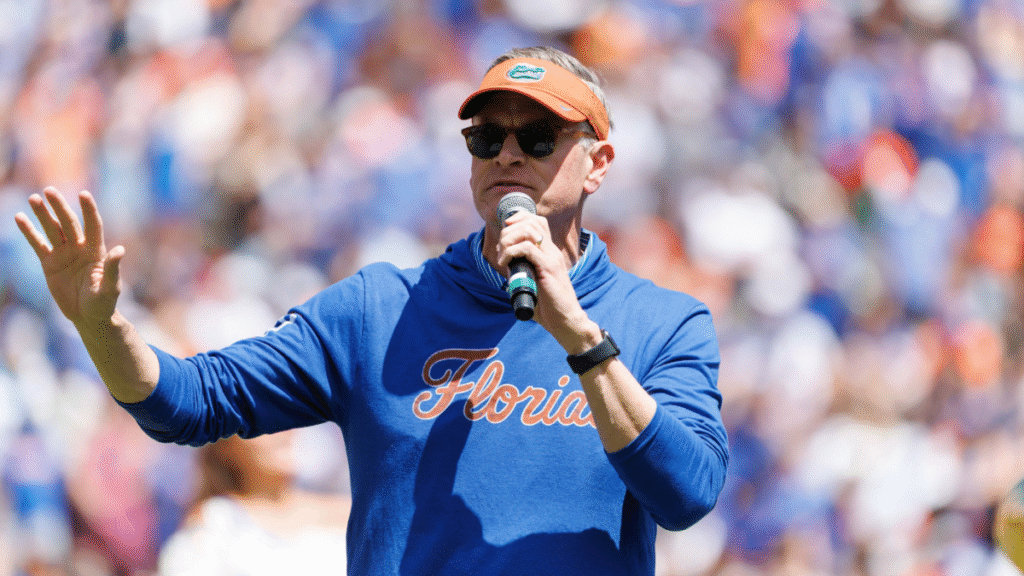The future of the College Football Playoff is a hot-button issue at the SEC spring meetings, and Florida athletic director Scott Stricklin added to the discussions when he questioned the need for a selection committee altogether.
Since the CFP’s formation in 2014, various iterations of a 13-member committee constructed the postseason brackets, not in a dissimilar fashion to the NCAA’s model for other championship sports. Stricklin said Tuesday, per Yahoo Sports’ Ross Dellenger, that football is different from the other sports because it has less data and fewer games, and thus less to consider in the selection process.
Stricklin, notably, served on the CFP selection committee from 2018 to 2021. He was among the numerous athletic directors and prominent current and former college football figures to hold a position on the subject. Members generally serve terms ranging from two to four years to facilitate an annual rotation.
“A committee is not ideal to choose a postseason,” Stricklin said. “I question whether it is appropriate for college football.”
Future of the College Football Playoff hinges on touchy subject among power conferences: Automatic qualifiers
Brandon Marcello
The CFP selection committee includes one active athletic director from each power conference and rounds out its membership with former coaches, players, administrators and media members. It releases weekly top 25 rankings during the second half of the season and seeds the playoff bracket using a variety of factors.
Previous iterations of the selection committee were criticized for controversial seeding and playoff inclusion decisions. The final four-team playoff was scrutinized most heavily after Florida State became the first undefeated power conference champion to be held out of the bracket.
College football has a long history of crowning a champion that does not include a selection committee. For decades, media and coaches polls awarded national titles to their top-ranked teams. The BCS arrived in 1998 and used a computer formula to rank teams and pit the top two squads against each other in a winner-take-all championship game.
Controversies during the BCS era put pressure on decision-makers to establish the CFP and take the selection process away from computers and place it in the hands of prominent figures with extensive college football knowledge.
Greg Sankey kicks off SEC spring meetings with selective memory and spin that fails the reality test
Tom Fornelli

Playoff selection is far from a straightforward process in that teams from various conferences play an unequal number of league games and face different strengths of schedule. Expansion to the present 12-team model instituted automatic bids to each of the five highest-ranked conference champions, but the filling of seven at-large spots and the seeding of the participating teams still lies with the committee.
A straight-seeding model was approved last week for the 2025 playoff. And discussions are ongoing among conference leaders to potentially expand the playoff to 14 or 16 teams, beginning with the 2026 season when the CFP begins its next media rights agreement.
Read the full article here



